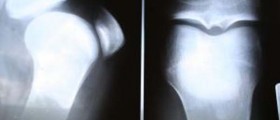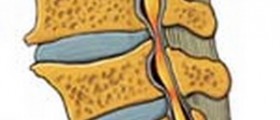
Spinal Tumor
Spinal tumor affects the spinal cord or vertebrae. Whether the tumor is cancerous or not it is a rare disease. Spinal tumor can be a result of spreading of the cancer which started somewhere else in the body such as breasts, liver or kidneys. The most common symptom of spinal tumor in pain in the back but it does not have to mean that you have tumor if you experience back pain.Symptoms
Pain in the back is the symptom that occurs in almost three quarters of spinal tumors. The pain can be mild or severe depending on the type and size of tumor. Usually the pain worsens during the night and it can spread to the rest of the body. In some cases the pain which is a consequence of tumor cannot be relieved with painkillers. Other symptoms include numbness or tingling sensation in the legs, weakness in the muscles, walking difficulties, vision impairment, swellings, weight loss, problems with urination and impaired bowel function. If specific spinal nerves are affected by tumor, it may lead to paralysis. If the tumor is large, it may cause deformities or curvature of the spine. Some noncancerous tumors may have slightly different symptoms. Aneurismal bone cyst includes pain which gradually worsens, fever, swellings and headaches. Giant cell tumor also includes pain and swelling. Hemanginoma can cause internal bleeding which can cause pain. In some cases of Hemanginoma there are no symptoms at all. Osteoid osteoma includes pain that increases in the night, and in some cases swelling and tenderness. This pain can be eased with painkillers. Every type of spinal tumor carries risks of complications which can be devastating and life threatening especially is a nerve is damaged.Diagnosis
Since the pain in the back can occur as a result of many disorders, your doctor will have to perform different diagnostic tests in order to find out if you have spinal tumor. The doctor will do neurological and physical tests. The tests include MRI or CT scan of the spine with or without myelogram and biopsy.Treatment
Depending on the fact whether there are any symptoms at all or the symptoms are severe, your doctor will determine the right treatment. If there are no symptoms and the tumor is noncancerous, your doctor will recommend monitoring of your condition, especially if your age and overall health condition prevent you from having surgery or radiation. You should have regular exams because the tumor can progress. Another treatment options include surgery, radiation, chemotherapy and medications.



-Causes,-Symptoms,-Diagnosis,-Treatment_f_280x120.jpg)












Your thoughts on this
Loading...